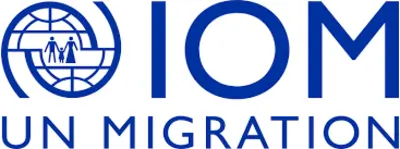
International Organization for Migration
CONCEPT NOTE
Strengthening INSTAD’s capacity to collect, analyze and disseminate data on migration in Djibouti from administrative and complementary sources.
1. Context and justification
Migration is a phenomenon that affects every country in the world, and is the focus of particular attention from governments and development partners at both national and international level. Objective 1 of the Global Compact for Safe, Orderly and Regular Migration stresses the importance of collecting and using accurate, disaggregated data to serve as a reference for the implementation of evidence-based policies and programs. Indeed, good migration governance at all levels requires high-quality, harmonized statistics, and in the African Union’s Revised Migration Policy Framework (AU – MPFA), and its 2018-2027 Plan of Action; as well as in IGAD’s Regional Migration Policy Framework (IRMPF), a mandate exists for the management and harmonization of migration data.
Due to its strategic position between East Africa and the Gulf States, Djibouti is considered a key transit country for irregular migratory flows in the region. According to data from the International Organization for Migration (IOM), most migrants heading for Saudi Arabia via Djibouti in the hope of finding work are mainly from Ethiopia and Somalia. Since the resumption of conflict in Yemen in 2015, thousands of refugees from Yemen have arrived on Djibouti’s shores. According to IOM estimates, around 100,000 people arrive in Djibouti every year (IOM/DTM, 2019).
To take advantage of the opportunities offered by migration for development, the Republic of Djibouti set up by Decree N˚2019/279/PR/MI, a National Coordination Office for Migration whose main mission is to examine the priorities, challenges and opportunities related to the management of Migration in Djibouti in order to propose appropriate measures to the government to address them, notably through the implementation of the national strategy on migration, and to serve as a framework for consultation and dialogue between members of the government for effective and coordinated management of the situation of migrants.
In this context, it is essential to generate relevant, harmonized and disaggregated data to support evidence-based strategies. Indeed, migration statistics are essential to ensure proper programming and coordination of policies and relevant, sustainable interventions to support migrants, particularly the most vulnerable. At present, only limited data on migration are available from the 2009 general population and housing census, as well as from a few thematic surveys developed by INSTAD in collaboration with the IOM Djibouti office and the World Bank.
INSTAD intends to take advantage of the next Population and Housing Census (RGPH-3) to produce a set of data enabling in-depth analysis of the country’s migration profile.
The Institut de Statistique de Djibouti (INSTAD), through its various technical departments, notably the Department of Demographic and Social Statistics, plays an essential role in the collection, analysis and dissemination of demographic and social statistics in Djibouti.
To achieve these objectives, INSTAD in collaboration with IOM, aims to recruit an international consultant to strengthen its capacities, particularly in the collection and analysis of socio-demographic data.
In addition, INSTAD and IOM have jointly set up a national Technical Working Group (TWG) to harmonize the collection, analysis and dissemination of migration data between ministries, departments and agencies. This collaborative effort aims to strengthen the overall data ecosystem in Djibouti, ensuring comprehensive and reliable migration statistics for informed decision-making.
To further capitalize on the successes of this existing partnership and achieve greater impact, INSTAD is seeking IOM’s support in providing a consultant specialized in migration and displacement data collection and analysis.
This initiative is supported by the Better Migration Management (BMM) programme, funded by the European Union and the German Federal Ministry for Economic Cooperation and Development (BMZ).
2. Objectives
The primary objective of this project is to produce the first annual National Migration and Displacement Statistical Yearbook in Djibouti. The yearbook will compile, analyze, and present migration and displacement-related data, offering insights into trends, patterns, and policy implications. More specifically, it aims to:
– Compile and integrate data from various Ministries, Departments, and Agencies (MDAs) and international organizations into a cohesive and standardized format within the National Statistical Yearbook.
– Develop a structured timeline and publication schedule for the annual release of the yearbook, ensuring that accurate migration and displacement data is made available to stakeholders every year.
– Create a user-friendly and accessible format for the yearbook, making migration and displacement data easily understandable by policymakers, researchers, civil society, media, and the general public.
– Analyze the compiled data to identify trends, patterns, and dynamics related to migration and displacement, and interpret the findings to provide actionable insights for policy development.
– Generate evidence-based recommendations from the analyzed data to guide policymakers, government agencies, and stakeholders in developing targeted interventions that address the needs of migrants, refugees, and internally displaced persons.
– Facilitate collaboration and engagement among relevant stakeholders, including INSTAD, IOM Djibouti, government agencies, and international organizations, to ensure accurate data collection, sharing, and analysis.
– Strengthen the capacity of INSTAD technicians and relevant MDAs in data collection, validation, and reporting, enhancing their expertise in migration and displacement data management.
– Promote the adoption of standardized data collection methodologies among MDAs and international organizations, ensuring consistency and comparability of migration and displacement data.
– Disseminate the yearbook’s findings through workshops, seminars, webinars, and targeted awareness campaigns, increasing public understanding of migration and displacement issues and promoting evidence-based discussions.
– Leverage the availability of accurate and comprehensive migration and displacement data to attract the attention of development partners, donors, and international organizations, fostering resource mobilization for initiatives addressing migration-related challenges.
– Align the yearbook’s objectives with the United Nations’ Sustainable Development Goals (SDGs) and international migration agendas, positioning Djibouti as a contributor to global discussions on migration and displacement.
– Establish a robust monitoring and evaluation framework to track the impact of the yearbook’s publication on policymaking, awareness, and data-driven decision-making in the migration and displacement domain.
3. Expected outcomes
– Comprehensive Data Repository: The National Migration and Displacement Statistical Yearbook will serve as a consolidated and up-to-date repository of migration and displacement-related data. It will provide a comprehensive overview of trends, patterns, and dynamics within the country, facilitating evidence-based policymaking.
– Informed Decision-Making: The availability of reliable and current migration and displacement data will empower policymakers, government agencies, and stakeholders to make informed decisions and develop targeted interventions that address the specific needs of migrants, refugees, and internally displaced persons.
– Enhanced Advocacy and Resource Allocation: The yearbook’s data-driven insights will strengthen advocacy efforts for improved resource allocation and support for migrants, refugees, and internally displaced individuals. It will contribute to evidence-based discussions on areas such as education, health, employment, and social services.
– Improved Monitoring and Reporting: Regular publication of the yearbook will establish a framework for consistent monitoring and reporting on migration and displacement trends over time. This will facilitate the tracking of progress towards achieving national and international development goals.
– Data-Driven Policy Development: The yearbook’s analysis of migration and displacement patterns will enable the development of targeted policies that address the specific challenges and opportunities presented by different migration streams. This will enhance the integration of migrants, protect vulnerable populations, and promote social cohesion.
– Enhanced Collaboration: The project’s collaboration between the Institute of Statistics of Djibouti (INSTAD), IOM Djibouti, and relevant government agencies will foster a strengthened partnership in data collection, analysis, and sharing. This collaboration will contribute to harmonized and coordinated efforts in the migration and displacement domain.
– Awareness and Capacity Building: The yearbook’s user-friendly presentation of data will increase the accessibility of migration and displacement information to a wider audience, including researchers, civil society organizations, media, and the general public. This will enhance awareness and knowledge on migration-related issues.
– Sustainable Data Governance: The establishment of an annual publication cycle for the yearbook will contribute to the development of a sustainable data governance framework. This framework will promote continuous data collection, validation, and reporting, ensuring the availability of timely and accurate data.
– International and Regional Collaboration: The yearbook’s alignment with international statistical standards and SDGs will position Djibouti as a contributor to global and regional discussions on migration and displacement. It will facilitate the sharing of best practices and lessons learned with other countries.
– Enhanced Resource Mobilization: The availability of credible and comprehensive migration and displacement data will attract the attention of development partners, donors, and international organizations. This can lead to increased support, funding, and technical assistance for initiatives aimed at addressing migration-related challenges.
4. Scope of Work
The consultant will collaborate with a team of technicians from the Institute of Statistics of Djibouti (INSTAD) and key stakeholders. The following tasks will be undertaken:
- Collect, synthesize, and analyze migration and displacement-related data from diverse sources, including Ministries, Departments, Agencies, IOM’s Displacement Tracking Matrix (DTM), UNHCR, Central Bank of Djibouti, and Immigration office.
- Design a visually appealing and user-friendly format for the annual yearbook, integrating data visualization tools.
- Perform data validation and quality assessments to ensure accuracy and consistency.
- Develop thematic chapters addressing migration patterns, demographic characteristics, labor migration, remittances, asylum seekers, refugees, and internal displacement.
5. Duration
- 45 days
6. Required Skills and Qualifications
- Expertise in migration and displacement data analysis.
- Proficiency in statistical software and data visualization tools.
- Strong analytical and report writing skills.
- Experience working with government agencies, international organizations, and stakeholders.
7. Required Resources
- IOM Djibouti will provide technical support and resources to facilitate yearbook development.
8. Deliverables
- Annual National Migration and Displacement Statistical Yearbook in Djibouti.
- Data visualizations and infographics for enhanced data communication.
- Presentation of the draft yearbook to stakeholders for feedback.
9. Reporting
The international consultant will report to the Director of Demographic and Social Statistics at INSTAD and collaborate closely with relevant focal points from IOM Djibouti and other stakeholders.
10. Evaluation and Payment
Payments will be based on deliverables and quality, as assessed by INSTAD and IOM Djibouti.
How to apply
Submission
Interested candidates must submit detailed proposals outlining approach, methodology, timeline, and budget. by mentioning the reference indicated above and sent by email : [email protected] by 17 january 2024
Deadline: 17 Jan 2024

